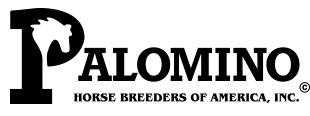PHBA CHALLENGED HORSEMAN PROGRAM
Show Rules and Procedures
4950. General Rules
A. To provide show management with the option to include the Challenged Horseman Program, PHBA has adopted these rules or participants. In doing so, PHBA does not assume responsibility for safety of participants. Since it is show management which conducts these events and controls both the physical facility and all aspects of the events, responsibility for participant’s safety remains solely with show management.
B. In the case of adult participants, each participant assumes all risk of personal injury or property damage and releases and discharges Palomino Horse Breeders of America and show management, their respective officers, directors, representatives, and employees, from any and all liability, whenever or however arising, as to personal injury or property damage occurring as a result of participation in these events, except for the negligent act or omission, if any, of said indemnities. If the participant is a minor, the parent or guardian, by allowing participation, assumes all risk of personal injury or property damage occurring as a result of the participation and does hereby release and discharge PHBA and show management, their respective officers, directors, representatives and employees from any and all liability, whenever or however arising, from such participation, except for the negligent act or omission, if any, of an indemnity. Further, as parent or legal guardian, they agree to indemnity and hold harmless PHBA and show management from such liability to the minor.
C. Each participant, and if a minor, the consenting parent or guardian, authorizes the use of any picture, still or video, which may be taken in conjunction with the exhibitor’s participation in these Challenged Horseman events for PHBA’s official use.
D. Registered and Unregistered Horses are eligible to compete in approved shows. Only geldings or mares may be shown. No stallions are allowed.
E. A current membership in PHBA is not required.
F. An exhibitor cannot show more than one horse in the same class. A horse can be shown multiple times in an individual work class.
G. Participants must be 5 years of age and over, with a diagnosed mental or physical condition.
Eligible Conditions Include:
Amputation
Anthrogryposis
Asperger’s Syndrome
Autism
Batten’s Disease
Cerebrovascular Accident (Stroke)
Cerebella Ataxia
Cerebral Palsy
Coffin Lowry Syndrome
Cystic Fibrosis
Down Syndrome
Dwarfism
Fragile X Syndrome
Freidrick’s Ataxia
Guillan Barre Syndrome
Hearing Impairment
Hunter’s Syndrome
Juvenile Rheumatoid Arthritis
Mental Retardation
Microcephaly
Multiple Sclerosis
Muscular Dystrophy
Post Polio Syndrome
Prader Willie Syndrome
Rhett Syndrome
Spina Bifida
Spinal Cord Injury
Touretts Syndrome
Traumatic Brain Injury
Trisomy Abnormalities
Visual Impairment
Other diagnosis will be considered upon request, see PHBA website.
The following disorders are not eligible:
ADHD
Anxiety Disorders
Chronic Fatigue Syndrome
Depression
Dyslexia
Eating Disorders
Fibromyalgia
Learning Disabilities
Psychological Diagnosis
H. The rider or their family does not have to own the horse.
I. Horses with a slight disability or lameness may be used at the discretion he judge.
4951. General rules for tack and equipment
A. Equipment should conform to the needs of the competitor and be suitable for the horse.
B. Special adaptive equipment may be used where appropriate.
1. Acceptable adaptive equipment includes:
Audio Communications
Bareback Pads
Boot Adaptations
Dowel Reins
Hand holds; flexible and/or rigid
Helmets
Laces to tie stirrups or leathers to girth or cinch
Ladder Reins
Loop Reins
Rainbow Reins
Rein Handles
Rein Handle Tethers
Rubber Bands
Saddle blocks, Wedges, Cushions
Safety Stirrups
Seat Savers
Surcingles
Whips (one or two)
Other equipment will be considered upon request
C. No equipment is allowed that would in any way affix the rider to the horse or saddle with the exception of light rubber bands. Safety stirrups (covered or other approved safety stirrups for Western attire OR Peacock, S-shaped irons or Devonshire for English attire) are required if rider is unable to wear boots with a heel.
4952. Attire
A. Classes can be ridden English or Western but must be one way or the other.
There will be no mixing of attire or equipment. English and Western equipment and attire will follow rules as set forth in the PHBA Handbook with exceptions of authorized adaptations.
4953. Show Approval
A. Show management applies for PHBA approval of these classes on a voluntary basis and assumption of responsibility for safety by show management is required by PHBA as an express condition for PHBA to grant approval for these classes. To obtain PHBA approval, the classes must be listed on the PHBA Show Approval Form when submitted to PHBA for show approval.
